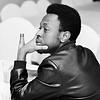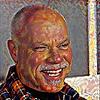You need to sign in or sign up before continuing.
Take a photo of a barcode or cover
Julian comes across in these memoirs as a student of Death, one who's studied it closely, observed with keen interest the ones it's taken, and the ones it's left behind to bear witness.
Meandering, he travels through disjointed threads of memories, tracing his identity through relationships with his bookish brother, nagging mother, quiet father and the mysterious figure that is his grandfather.
He questions the reliability of these memories all the while wrestling with the niggling intuition that they're all that makes one, one.
Death looms over like a shadow, haunting his dreams and waking life, making him miss a God he doesn't believe in.
Is there Nothing to be frightened of, or is Nothing, something to be frightened of?
Meandering, he travels through disjointed threads of memories, tracing his identity through relationships with his bookish brother, nagging mother, quiet father and the mysterious figure that is his grandfather.
He questions the reliability of these memories all the while wrestling with the niggling intuition that they're all that makes one, one.
Death looms over like a shadow, haunting his dreams and waking life, making him miss a God he doesn't believe in.
Is there Nothing to be frightened of, or is Nothing, something to be frightened of?
Death is final, but literature is not. Until you reach your last reader. When Barnes calls his last reader a 'bastard' my heart sang. If you want to know why, read the book.
I might have rated it higher, but somehow, being in a Depression and all, I was a little less excited about reading about Schopenhauer, atheism, and death.
Death is not a topic that I generally read books about. This book suggests that maybe I should. Of course, this is due to the fact that Barnes is a very good writer and I think this is one of his best books yet. At times it is hilarious. At times it is thought-provoking. Finally: It taught me that hair and nails do not continue growing after one dies.
truly wonderful. i liked this so much i'm gonna suggest it to my fellow members of our local Death Cafe. smart, funny, and philosophical.
4 .5
I was drawn to this book because of Barnes' writing and because of the topic. If it sounds odd to say one enjoyed a book about the fear of death/complete-annihilation, so be it. Barnes is entertaining; erudite; and even chuckle-out-loud funny in this book. He writes of his childhood memories, how they differ from those of his brother; how narrative/story both shapes and changes what we remember or what we think we remember; and contemplates the idea of memory = identity.
I was drawn to this book because of Barnes' writing and because of the topic. If it sounds odd to say one enjoyed a book about the fear of death/complete-annihilation, so be it. Barnes is entertaining; erudite; and even chuckle-out-loud funny in this book. He writes of his childhood memories, how they differ from those of his brother; how narrative/story both shapes and changes what we remember or what we think we remember; and contemplates the idea of memory = identity.
Looking out for death?
How entertaining and lightly can one write about death? Fatalistic, subdued and saddened, yes, that we can imagine. Or maybe rebellious and desperate? Or just the other way around: with religious confidence or even fanatical arrogance, that too. And finally, maybe even with indifference, cynicism and sarcasm. In this book Julian Barnes reviews all these emotions and attitudes towards mortality. Not as a systematic essay on how others think about death, on what religions or atheism tell us, or what science teaches us. Or rather: that too. Yet in the first place, he talks about how he himself struggles with the prospect of the end, and especially with how much trouble he has with imagining the long infinity that lies beyond the moment of death. Because Barnes makes no secret of it: he has an existential fear about his own mortality.
Lucky for us that fear doesn’t paralyze him (too much), quite the contrary. For about 250 pages he knows to keep our attention with continuous, pertinent questions about life, about being human, the free will, ageing, suffering and the always provisional answers to these questions. And as we have come to expect from Barnes he does so in a brilliant style. In this book it's raining quotes and references, especially from the 19th century French authors so beloved by him: Gustave Flaubert, the Goncourt brothers, Jules Renard. But that’s not all: he also involves his friends, his own parents and especially his older brother-philosopher on this winding road, with sometimes upsetting intimate details.
I’m a bit embarrassed to admit it, but I actually enjoyed reading this book about death and mortality, though it actually leads nowhere. But I can recommend it to any reader: you really have nothing to be frightened of.
How entertaining and lightly can one write about death? Fatalistic, subdued and saddened, yes, that we can imagine. Or maybe rebellious and desperate? Or just the other way around: with religious confidence or even fanatical arrogance, that too. And finally, maybe even with indifference, cynicism and sarcasm. In this book Julian Barnes reviews all these emotions and attitudes towards mortality. Not as a systematic essay on how others think about death, on what religions or atheism tell us, or what science teaches us. Or rather: that too. Yet in the first place, he talks about how he himself struggles with the prospect of the end, and especially with how much trouble he has with imagining the long infinity that lies beyond the moment of death. Because Barnes makes no secret of it: he has an existential fear about his own mortality.
Lucky for us that fear doesn’t paralyze him (too much), quite the contrary. For about 250 pages he knows to keep our attention with continuous, pertinent questions about life, about being human, the free will, ageing, suffering and the always provisional answers to these questions. And as we have come to expect from Barnes he does so in a brilliant style. In this book it's raining quotes and references, especially from the 19th century French authors so beloved by him: Gustave Flaubert, the Goncourt brothers, Jules Renard. But that’s not all: he also involves his friends, his own parents and especially his older brother-philosopher on this winding road, with sometimes upsetting intimate details.
I’m a bit embarrassed to admit it, but I actually enjoyed reading this book about death and mortality, though it actually leads nowhere. But I can recommend it to any reader: you really have nothing to be frightened of.
- Whether I am tempted - or deceived - by the idea that a human life is after all a narrative, and contains the proper satisfactions of a decent novel. P. 249
Writers need certain stock replies for certain stock questions. When asked What The Novel Does, I tend to answer, 'It tells beautiful, shapely lies which enclose hard, exact truths.' We talk of the suspension of disbelief as the mental prerequisite for enjoying fiction, theatre, film, representational painting. It's just words on a page, actos on a stage or screen, colors on a piece of canvas: these people don't exist, have never existed, or if they did, these are mere copies of them, briefly convincing simulacra.
Writers need certain stock replies for certain stock questions. When asked What The Novel Does, I tend to answer, 'It tells beautiful, shapely lies which enclose hard, exact truths.' We talk of the suspension of disbelief as the mental prerequisite for enjoying fiction, theatre, film, representational painting. It's just words on a page, actos on a stage or screen, colors on a piece of canvas: these people don't exist, have never existed, or if they did, these are mere copies of them, briefly convincing simulacra.
I thoroughly enjoyed reading Mr. Barnes reflections on the ultimate question. It was sincere, honest, imperfect and beautifully human. As Prof. Miller stated in The Throe of Wonder, “To create a dialogue between reason and the heart by raising heartbreaking questions seems to be the one way to describe the special vocation of philosophy.” (168) Thank you, Mr. Barnes.
This work is Barnes’ attempt to “get this whole death thing straight,” as he puts it. He walks through philosophical questions about death, belief in afterlife, the ways his loved ones have died, whether or not there is a way to “succeed” at dying well. He has a very lighthearted way of dealing with such a truly heavy topic, and it left me feeling oddly comforted to be reading so much about death. The pace definitely putters along and lingers on stories of certain French authors that Barnes admires; in many ways, reading it feels like taking a long stroll with an old friend. It’s the right pace for a book like this, definitely. It gave me a few good chuckles, a few sobering thoughts, and some questions I’ll need to answer for myself as time goes on.





